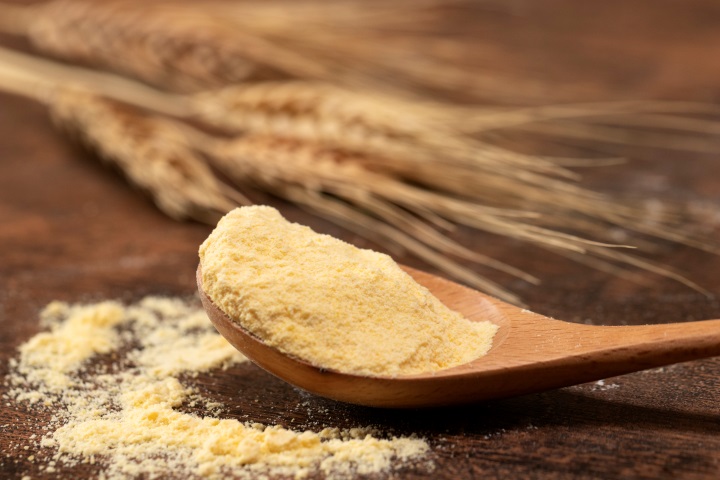Nutritional yeast, also known as “nooch,” is a type of inactive yeast that is grown specifically for its nutritional value. It is a popular ingredient in vegan and vegetarian cooking because it is a rich source of vitamin B12, a nutrient that is typically only available in animal products like milk and eggs. Nutritional yeast has a strong flavor that is described as nutty or cheesy, which makes it popular as an ingredient in cheese substitutes. It is often used by vegans in place of cheese in mashed and fried potatoes or scrambled tofu, or as a topping for popcorn.
Nutritional yeast is produced by culturing yeast in a nutrient medium for several days. The primary ingredient in the growth medium is glucose, often from either sugarcane or beet molasses. When the yeast is ready, it is deactivated with heat and then harvested, washed, dried, and packaged. The species of yeast used is often a strain of Saccharomyces cerevisiae.
Is Nutritional Yeast Safe?
Nutritional yeast is largely considered safe, though some people may experience allergic reactions or digestive issues. If you have a yeast allergy, you should avoid nutritional yeast. Additionally, some people may experience digestive issues like bloating, gas, or diarrhea when consuming nutritional yeast. If you experience any adverse effects, you should stop consuming nutritional yeast and consult with your healthcare provider.
Nutrition of Nutritional Yeast
Nutritional yeast is a vegan food product with a savory, umami flavor. It comes in both fortified and unfortified varieties. Nutritional yeast is a great source of plant-based protein, B vitamins, and trace minerals. Fortified nutritional yeast contains more B vitamins than unfortified varieties, as extra amounts are added during manufacturing. Just 2 teaspoons (5 grams) of fortified nutritional yeast contain:
- Calories: 20
- Protein: 3 grams
- Fat: 0 grams
- Carbs: 2 grams
- Sugar: 0 grams
Nutritional Yeast Benefits
Nutritional yeast is a versatile ingredient that is packed with nutrients and health benefits. Here are some of the benefits of nutritional yeast:
Rich in Nutrients
Nutritional yeast is a rich source of B vitamins, including vitamin B12, which is essential for energy, red blood cell creation, and metabolism. It is also a good source of protein, fiber, and trace minerals like zinc, selenium, and manganese.
Boosts Energy
Nutritional yeast is a rich source of B vitamins, which are essential for energy production. It can help improve energy levels and reduce fatigue.
Supports Immune Health
Nutritional yeast is a good source of beta-glucans, which are compounds that can help boost the immune system and reduce inflammation.
Read More: 21 Foods That Boost the Immune System
Lowers Cholesterol
Studies have shown that nutritional yeast can help lower cholesterol levels, which can reduce the risk of heart disease.
Protects Against Cell Damage
Nutritional yeast is a good source of antioxidants, which can help protect against cell damage that leads to disease.
Vegan and Gluten-Free
Nutritional yeast is a vegan and gluten-free ingredient that is a great source of nutrients for people with dietary restrictions.
Versatile Ingredient
Nutritional yeast is a versatile ingredient that can be used in a variety of ways to add flavor and nutrition to your meals. It can be used as a seasoning, in sauces, in baked goods, and more.Overall, nutritional yeast is a nutritious and versatile ingredient that can provide a variety of health benefits. Whether you’re looking to boost your energy levels, support your immune system, or reduce your cholesterol levels, nutritional yeast is a great ingredient to have on hand.
How to Use Nutritional Yeast?
Nutritional yeast can be used in a variety of ways to add flavor and nutrition to your meals. Here are some ideas:
- Sprinkle it on popcorn for a cheesy flavor.
- Use it as a seasoning for roasted vegetables.
- Add it to mashed potatoes or scrambled tofu for a cheesy flavor.
- Use it as a topping for pasta dishes.
- Mix it into soups or stews for added nutrition.
How To Use Nutritional Yeast In Cooking?
Nutritional yeast is a versatile ingredient that can be used in a variety of ways to add flavor and nutrition to your meals. Here are some ideas on how to use nutritional yeast in cooking:
As a seasoning:
Nutritional yeast can be used as a seasoning to add a cheesy, nutty flavor to your dishes. Sprinkle it on top of popcorn, roasted vegetables, or pasta dishes for added flavor.
In sauces:
Nutritional yeast can be used to make a variety of sauces, including vegan cheese sauce, Alfredo sauce, and pesto. It can also be added to soups and stews to thicken and add flavor.
In baked goods:
Nutritional yeast can be added to bread, pizza dough, and other baked goods to add flavor and nutrition.
In scrambled tofu:
Nutritional yeast can be added to scrambled tofu to give it a cheesy flavor.
In mashed potatoes:
Nutritional yeast can be added to mashed potatoes to give them a cheesy flavor.
In salad dressings:
Nutritional yeast can be added to salad dressings to give them a nutty flavor.
In vegan burgers:
Nutritional yeast can be added to vegan burgers to give them a cheesy flavor.
In vegan mac and cheese:
Nutritional yeast is a key ingredient in vegan mac and cheese, giving it a cheesy flavor.
In risotto:
Nutritional yeast can be added to risotto to give it a nutty flavor.
In roasted nuts:
Nutritional yeast can be added to roasted nuts to give them a cheesy flavor.
Overall, nutritional yeast is a versatile ingredient that can be used in a variety of ways to add flavor and nutrition to your meals. Whether you’re looking to add a cheesy flavor to your popcorn or roasted vegetables, or you’re looking for a way to boost the nutrition of your soups and stews, nutritional yeast is a great ingredient to have on hand.
Side Effects of Nutritional Yeast
Nutritional yeast is generally considered safe for most people, but there are some potential dangers associated with consuming it. Here are some of the dangers of nutritional yeast:
Digestive Issues:
Nutritional yeast is high in fiber, which can cause digestive issues like bloating, gas, abdominal cramps, and diarrhea if consumed in large amounts or introduced too quickly into the diet. It is recommended to gradually increase the amount of nutritional yeast in your diet to avoid digestive issues.
Read More: 11 Natural Ways to Improve Digestion
Headaches:
Some people may experience headaches or migraines after consuming nutritional yeast. This may be due to the high levels of tyramine, an amino acid that can trigger headaches in some people.
Facial Flushing:
Nutritional yeast may cause facial flushing in some people. This is due to the high levels of niacin, a B vitamin that can cause blood vessels to dilate and result in a flushed appearance.
Yeast Intolerance and Inflammatory Bowel Disease:
Nutritional yeast is a form of yeast, and some people may be intolerant to yeast products. People with inflammatory bowel disease (IBD) should also be cautious when consuming nutritional yeast, as it may exacerbate symptoms.
It is important to note that these side effects are rare and usually occur when nutritional yeast is consumed in large amounts or introduced too quickly into the diet. In general, nutritional yeast is safe for most people and offers many health benefits. However, if you experience any adverse effects, it is best to stop consuming nutritional yeast and consult with your healthcare provider.
Conclusion
Nutritional yeast is a versatile and nutritious ingredient that can be used in a variety of ways to add flavor and nutrition to your meals. It is a great source of plant-based protein, B vitamins, and trace minerals, making it a popular ingredient in vegan and vegetarian cooking. Whether you’re looking to add a cheesy flavor to your popcorn or roasted vegetables, or you’re looking for a way to boost the nutrition of your soups and stews, nutritional yeast is a great ingredient to have on hand.
Resources:
https://www.ncbi.nlm.nih.gov/pmc/articles/PMC9147304/
https://www.ncbi.nlm.nih.gov/pmc/articles/PMC8780597/













